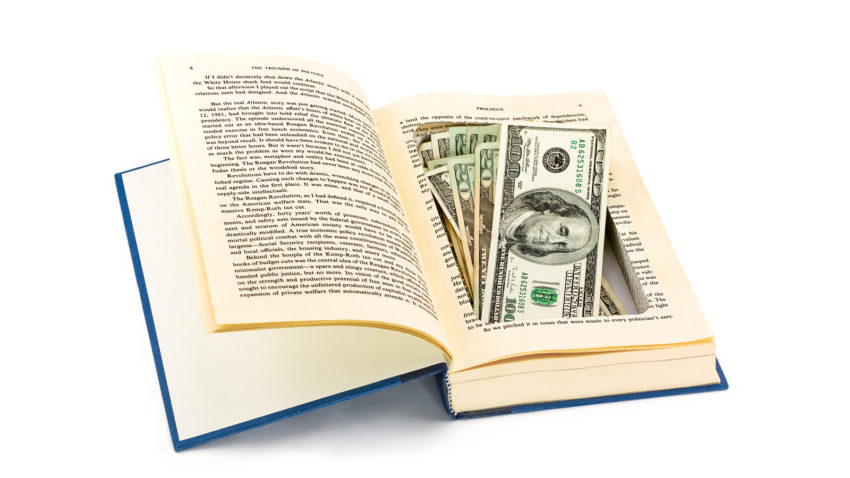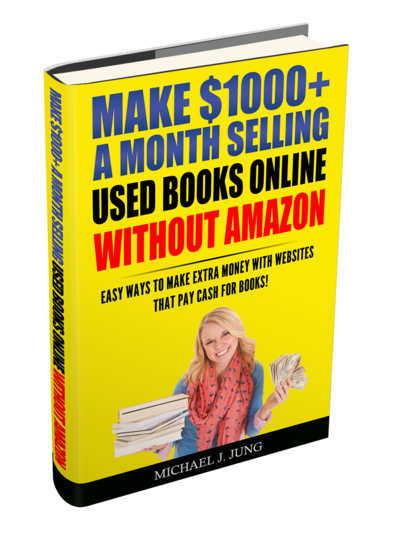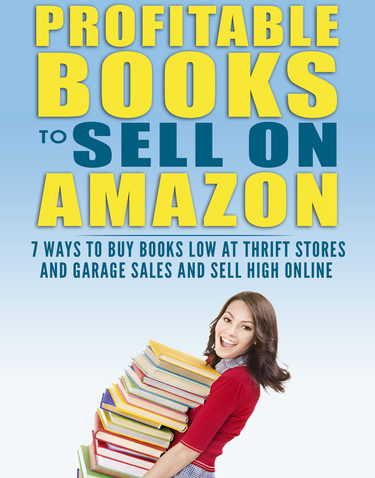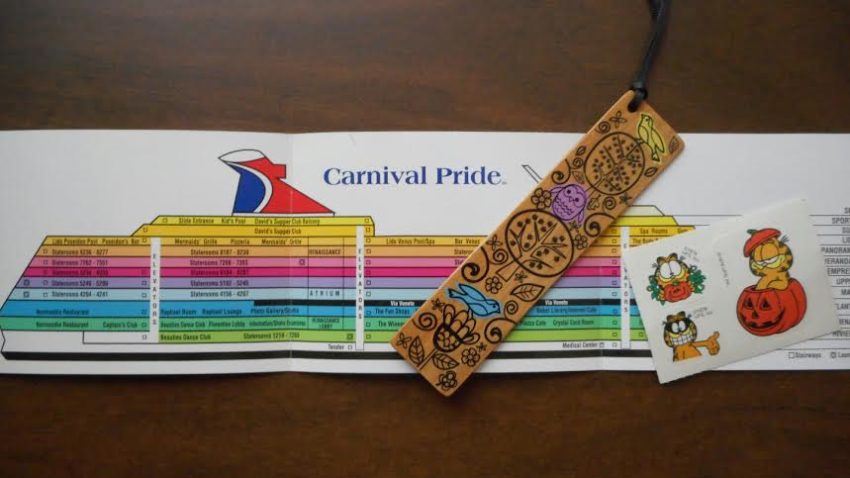
Hey guys!
Since I’m in a goofy mood today, I thought I’d take a break from my usual informative articles about selling books online for money and let you know about some of the more… weird things you find inside books while searching for used books to sell for cash.
As many of you who’ve sold books online with Bookscouter probably know, being an online bookseller is a lot like being a treasure hunter.
Think about it. You get to go to strange corners of thrift shops and library sales, flip through dozens and dozens of run-of-the-mill books, and uncover those hidden gems that will earn you a lot of extra cash online.
And while the ultimate goal remains finding valuable books you can sell to buyback companies or on Amazon for a profit, sometimes flipping through so many books on a regular basis will cause you to find some unusual items, ranging from the very valuable to the just plain bizarre.
Most of these items were used as bookmarks by the previous owners (although as you’ll see, I’d think twice before sticking some of these things in a book and then forgetting about them).
Here, in no particular order, are some of the weirdest things I’ve found inside of used books:
Dried Leaves Art
Remember those grade school nature walks or arts projects where your teacher showed you how to press tree leaves by flattening them inside the pages of a book? Apparently some people forgot to take their leaves out of their books (or thought they’d make fun bookmarks) because I sure sweep a lot of them out of my books!
What’s remarkable is the type of leaves I find – while many are ordinary leaves you can find on any tree, I’ve found some very exotic leaves and flowers pressed between the pages of a book – like Canadian maple leaves and palm tree fronds.
It’s gotten to the point where I’m thinking of starting my own leaf collection – using the unusual plants people keep leaving for me!
Fortunately, no one’s decided to hold their place in a book with a piece of poison ivy yet (who says this isn’t a high risk job?)
Love Letters and Postcards
Sometimes, the items I find tend to be of a more… personal nature. From vacation postcards sent from mother to daughter, to tiny scrawled notes that were probably passed between school desks it’s remarkable what people feel comfortable leaving inside their textbooks and novels.
More than once, I’ve come across several drafts of half-finished love letters, leaving me wondering if the finished products ever reached their intended recipients.
Don’t worry – all of these finds get immediately shredded once I find them. I figure I should value these people’s privacy (even if they don’t seem to…).
Photographs
And speaking of personal items, I’ve found more than a few… interesting Polaroids stuck between the pages of a book.
No, not that kind! (get your mind out of the gutter!). Still, you have to admit it’s weird opening a book and finding yourself staring at someone else’s vacation photos or graduation pictures.
Frankly, considering how we’re moving more and more into digital media, it’s amazing people still choose to print these hard copies. Sometimes I wonder how old these photos are – and if some of those kids in the high school photographs aren’t nearing retirement age by now.
Store Gift Cards
Apparently people will use anything as a bookmark these days – including a brand-new H&M gift card with more than $100 in store credit. Yes, it’s true – sometimes the items you find inside a book can be worth much more than the book itself!
(By the way, if any of you nice people out there like to donate books – I like free movies and restaurant meals).
Money
Now here’s a forgotten bookmark I can get behind! Quite a few people like to slip a few bucks to save their place in a book, and then end up donating their books before finishing them.
A surprising number of those bills tend to be $2 Thomas Jefferson bills that are used at the racetrack (which makes me wonder if there’s any link between people who like to read and people who like to bet on horses).
Unfortunately, in recent years, it’s become fashionable to cut up your money and only leave half a dollar bill in a book. I’ve tried to exchange this cut up money for new currency at the bank, but apparently you need more than half of a bill for it to be considered legal tender. Darn!
Trading Cards
Back in the day, lots of kids used baseball cards as improvised bookmarks.
These days, however, you can find all sorts of trading cards stuck between the pages – from Pokemon cards, to Magic the Gathering game cards, to old Fleer baseball cards.
And while I haven’t found any priceless Honus Wagner baseball cards yet, I am in the process of developing my own exciting RPG card game that involves teaming Michael Jordon and Pikachu against the Manticore from Magic the Gathering.
Greeting Cards
I’ve also found some gorgeous greeting cards in books (usually right after Christmas and New Year’s). Some of them are so fancy, I’ve been tempted to re-use the ones with just a little writing in them (Don’t worry, I’m not that cheap).
The only sad part about finding greeting cards in my thrift store finds is when I find a birthday card in a book that was clearly intended as the card’s gift. Apparently not all grandkids like receiving dictionaries as gifts…
Tickets
One of the things I love about working with used books is thinking about all the places they’ve traveled to before arriving at my local thrift shop – and nothing fires up my imagination like finding an old plane ticket or bus pass in a book.
From England to Hawaii to the Caribbean, there seems to be no end to the places a book can come from, or end up.
Once or twice, I’ve even come across someone’s entire itinerary folded in the pages of a book, and realized some of my books have traveled more than I have.
I even find some show tickets in a book from time to time – the problem is the shows are usually in Las Vegas and closed down three years ago. Sigh…
Other Forgotten Treasures Found in Books
Remarkably, these are only a few of the strange things I’ve found in books over the last ten years – and I’ll undoubtedly discover some even more unusual finds in years to come as readers become more creative with the type of things they use to hold their place in books.
Now if only someone would get the bright idea of using winning lottery tickets as bookmarks…
Did you like this article? Would you like to receive more tips and tricks on how to sell books online for extra money? Then go ahead and subscribe to my blog!
Do you have a question or suggestion for a future blog article? Email me at sellbooksfastonline@gmail.com.









